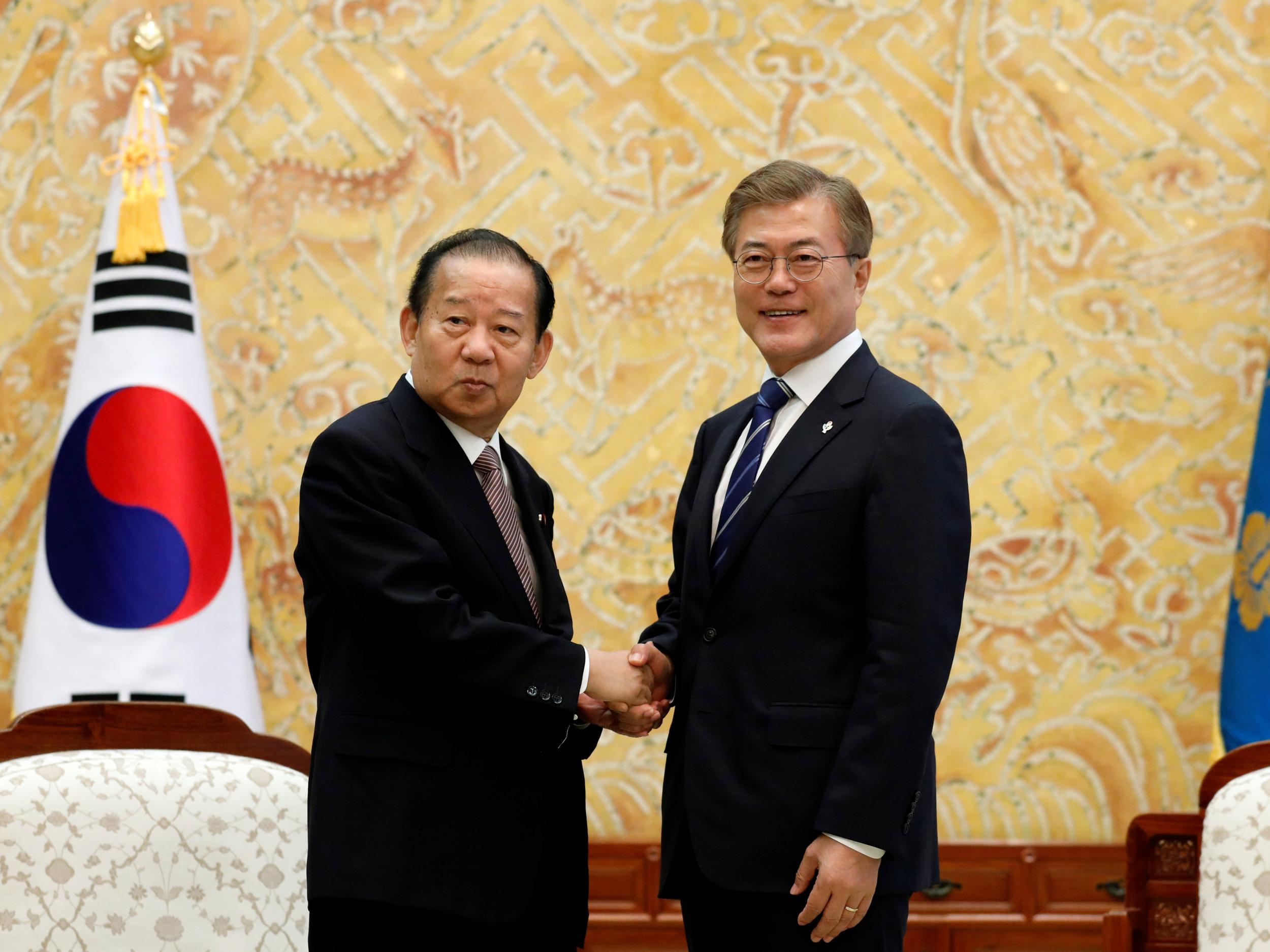South Korea warns Japan not to mention wartime sex slaves during trade talks
Issue of reparations for 'comfort women' forced to work in soldiers' brothels during conflict in the Pacific remains contentious between two nations

Your support helps us to tell the story
From reproductive rights to climate change to Big Tech, The Independent is on the ground when the story is developing. Whether it's investigating the financials of Elon Musk's pro-Trump PAC or producing our latest documentary, 'The A Word', which shines a light on the American women fighting for reproductive rights, we know how important it is to parse out the facts from the messaging.
At such a critical moment in US history, we need reporters on the ground. Your donation allows us to keep sending journalists to speak to both sides of the story.
The Independent is trusted by Americans across the entire political spectrum. And unlike many other quality news outlets, we choose not to lock Americans out of our reporting and analysis with paywalls. We believe quality journalism should be available to everyone, paid for by those who can afford it.
Your support makes all the difference.South Korea has warned Japan to exercise caution when making remarks about bilateral ties, including the issue of Korean “comfort women” forced to work in Japanese military brothels during the Second World War.
The warning followed reported comments by Toshihiro Nikai, secretary general of Japan's ruling Liberal Democratic Party, during a visit to Seoul to meet South Korean President Moon Jae-in and lawmakers.
Speaking with South Korean lawmakers, Nikai said on Saturday that “those plotting schemes” to block bilateral ties from moving forward should be “eradicated”, several Japanese and South Korean media reported.
“I don't know if in South Korea there are even a handful, but they must be eradicated,” Nikai was quoted as saying. He also expressed hope for the two countries to “get along well” and not to have relations tangled with “trivial matters”.
Nikai's office at the Liberal Democratic Party could not confirm his reported comments, which appeared not to include any direct reference to the “comfort women” issue.
But he came under fire from South Korean civic groups for possibly criticising people who support the reversal of a controversial agreement struck by Tokyo and Seoul's former conservative government in 2015 to resolve the issue.
“Comments related to relations between South Korea and Japan, including those regarding the comfort women issue, should be made with care,” a South Korean foreign ministry official said, in response to Nikai's reported comments. The official declined to be identified citing sensitivity of the issue.
'Comfort women' is a euphemistic term referring to those forced to work in Japan's wartime brothels, an issue that has long plagued bilateral ties.
Under the 2015 agreement, the two governments agreed that the issue would be “irreversibly resolved” if both sides fulfilled their obligations.
Nikai, the number two executive in his party behind Japanese Prime Minister Shinzo Abe, is usually known for his generally warm ties with South Korea and China.
He is slated to meet with Moon later on Monday, where he is expected to deliver a letter from Abe.
During his successful campaign for a 9 May election, Moon suggested he could try to renegotiate the 2015 “comfort women” agreement, reached by his predecessor Park Geun-hye and Abe in which Japan made an apology to the women affected and promised about one billion yen (£7 million) for a fund to help them.
Some of the comfort women, most of whom are now deceased or very elderly, have rejected the agreement and asked for a personal apology from Abe himself, among other demands.
In a phone call a day after taking office, Moon told Abe “many of the public do not agree with the deal” and the government needs more time to resolve the issue.
Abe and other Japanese officials have repeatedly said it was vital for the 2015 agreement to be implemented and for the two sides to move ahead based on a future-oriented relationship.
Reuters
Join our commenting forum
Join thought-provoking conversations, follow other Independent readers and see their replies
Comments